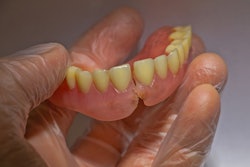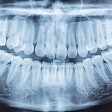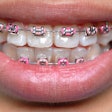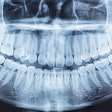
Artificial intelligence (AI) can achieve expert-quality implant planning with greater time efficiency and consistency than human intelligence (HI)-based methods. This research was recently published in the Journal of Dentistry.
Additionally, AI has shown excellent clinical acceptability for presurgical planning, with most implant plans requiring no major modifications, the authors wrote.
“AI demonstrated expert-quality and clinically acceptable single-implant planning, proving to be more time-efficient and consistent than the HI-based approach,” wrote the authors, led by Dr. Bahaaeldeen M. Elgarba, of the KU Leuven & Department of Oral and Maxillofacial Surgery in Leuven, Belgium (J Dent, June 22, 2024).
Traditional presurgical implant planning, which relies on HI, requires collaboration among experienced specialists, making the process complex and time-consuming. In contrast, AI-driven planning offers a more efficient and consistent alternative while maintaining clinical acceptability, they wrote.
To validate the AI-driven implant placement tool, the researchers used a dataset of 10 time-matched cone beam computed tomography scans and intra-oral scans previously acquired for single mandibular molar/premolar implant placement. Two generic implants—one AI-generated and one human-generated—were exported, evaluated, and compared for each case.
Then, 12 calibrated dentists assessed the quality of both approaches through blinded observations using a visual analog scale (VAS). Clinical acceptance was evaluated through an AI versus HI battle, similar to a Turing test, which evaluates a machine's ability to display intelligent behavior compared to humans. Finally, time efficiency and consistency between the two planning methods were also evaluated and compared, according to the study.
Overall, 360 observations were collected, with 240 focused on the VAS. Among these, 95% of AI plans and 96% of HI plans required no major clinically relevant corrections. In the AI versus HI Turing test (120 observations), AI and HI had matching judgments in four cases, with AI being favored in three cases and HI in three cases.
Additionally, AI completed planning in 198 ±33 seconds, more than twice as fast as HI, which took 435 ±92 seconds (p = <0.05). AI also demonstrated 100% consistency, showing zero-degree median surface deviation, compared to 0.3±0.17 mm for the HI approach, according to the results.
However, it is important to note that the AI training method used a curriculum-based approach, beginning with simple cases and progressing as it learned. Future studies should explore these aspects further to gain a comprehensive understanding, the authors wrote.
“These findings affirm the high performance of the AI approach and its non-inferiority compared to an expert-based approach,” they concluded.



















